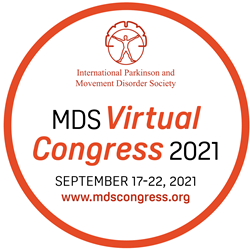
the results of this survey could give us a better understanding about the availability of clinical genetic tests and genetic counseling, and the hurdles in real world practice.
MILWAUKEE (PRWEB)
September 14, 2021
The MDS Task Force for Genetic Testing in Parkinson’s Disease (PD) released new research being presented at the MDS Virtual Congress 2021, which identified a need to assess the practices and barriers to genetic testing and counseling for current MDS members. With MDS members varying in specialty and region of the globe, potential results of a survey would give insight into possible disparities and/or trends in genetic testing around the world.
Results were gathered from a 52-item questionnaire about the availability and hurdles involved with PD patients receiving genetic testing and counseling. The questionnaire was sent out to over 8,000 MDS members, of which 568 responded. The major findings of the survey concluded that most of the barriers preventing clinicians from providing genetic testing to their patients were cost, lack of genetic counseling, and time needed to complete the testing. Barriers perceived for patients by clinicians also included cost and lack of genetic counseling, but also limited knowledge of genetics. In terms of availability of genetic testing, Europe, Pan-America and Asia/Oceania had 45%, 19% and 29% of members reporting having high availability. These reports showed moderate access to genetic testing compared to that of Africa, which was 5%.
Chin-Hsien Lin, Attending Physician and Professor in the Department of Neurology of the National Taiwan University Hospital, gave a response to this study, “the results of this survey show that only half of the responders report that genetic tests are available in their regions. Cost is the most common barrier in most regions. In our region, because the national health insurance does not cover the fees for genetic tests, patients need to pay on their own. In this case, many patients who have a family history of Parkinson’s disease, or movement disorders, or young-onset patients may not have the chance to receive the genetic tests to reach a molecular diagnosis. Only if the proband, or family members, participate in genetic research, would we have the chance to cover the cost of genetic tests for them after they sign the informed consents. However, it is not the best solution in the long run. All patients and family members need to receive genetic counseling, including what kind of genetic tests they are going to receive and their willingness to know the results of genetic tests, before the genetic testing. The interpretation and explanation of the variant of unknown significance of disease to related genes is another issue that needs to be concerned. Furthermore, if the patients receive whole exome or whole genome sequencing, it is another challenge for clinicians to explain the findings of unpredicted mutations in genes causing non-neurological disorders, for example, cancer. All this needs to be done by a team, including a neurologist, geneticist, genetic counselor and maybe social worker and counseling psychologist to provide required support, including emotional support and a further follow-up arrangement. These issues are of paramount importance for asymptomatic family members. All these concerns could be reflected by this MDS survey that more than 50% of hurdles for genetic tests are cost and up to nearly 40% are lacking availability of genetic counseling (37%).”
She continued her response saying, “the results of this survey could give us a better understanding about the availability of clinical genetic tests and genetic counseling, and the hurdles in real world practice. I will look forward to the future MDS Task Force recommendations to incorporate the variable needs from different regions for future tailored medicine in movement disorders.”
About the MDS Virtual Congress 2021: Meeting participants gather to learn the latest research findings and state-of-the-art treatment options in Movement Disorders, including Parkinson’s disease. Over 9,000 physicians, scientists and medical professionals from more than 100 countries will participate virtually to view over 30 hours of educational content and 1,300 scientific abstracts submitted by colleagues from around the world.
About the International Parkinson and Movement Disorder Society:
The International Parkinson and Movement Disorder Society (MDS), an international society of over 11,000 clinicians, scientists, and other healthcare professionals, is dedicated to improving patient care through education and research. For more information about MDS, visit http://www.movementdisorders.org.
Share article on social media or email:

